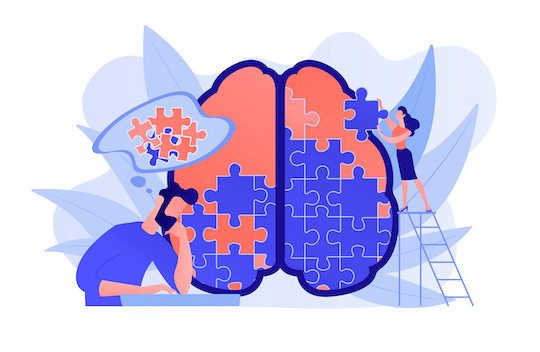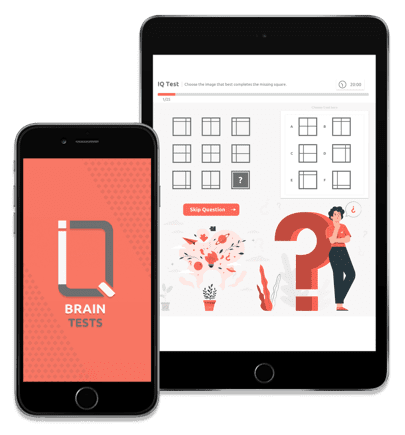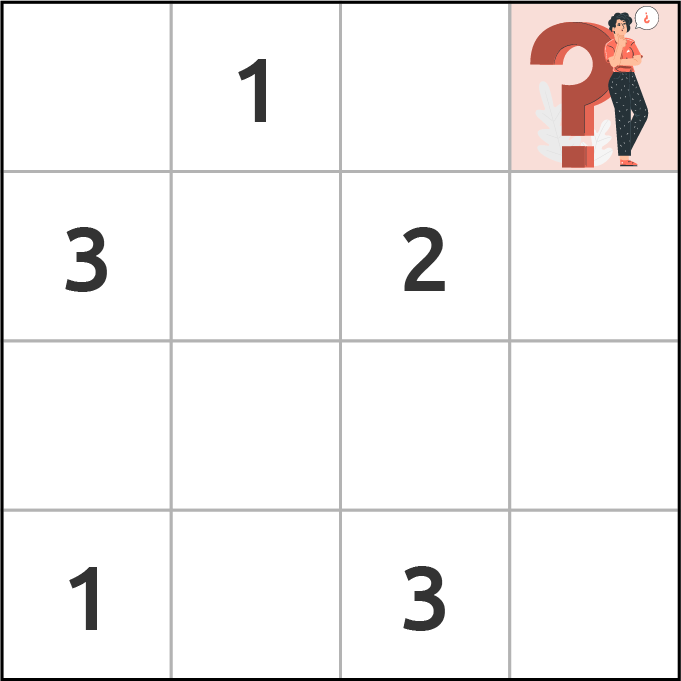1,359,907
Tests taken so far
Join these test-takers and learn just how smart you are. Take the test now.Highlighted tests
Logical Reasoning Test
Evaluates the ability to understand the logical relation between three different terms and the ability to transpose such relation to a diagram.
Number Series Test
Evaluates inductive reasoning. You will be given a number sequence and must detect the unspecified rule behind it to find the next number that completes the sequence.
Figure Series Test
Tests inductive reasoning and one’s ability to perceive and understand the unstated logical rules governing a sequence.
Why take an intelligence test online?
They are fun and educational. Intelligence tests are an entertaining and interesting way to assess your different cognitive skills and to satisfy your curiosity about how your score compares with those of your peers.
Online intelligence tests are available 24/7. You can choose the most suitable moment to take them, and thus avoid distractions and external factors that may hinder your results.
Instant Results. Have fun practicing or evaluating your reasoning and problem-solving skills and receive your results instantly! Our intelligence tests are free and do not require any type of registration.

What is Intelligence?
Intelligence is an abstract and multidimensional concept. Even after decades of study, there is still no concrete definition of intelligence as it is hard to encompass all its different aspects in one clear explanation.
Due to its complexity, instead of a single definition, intelligence is often explained through the capacities it entails. As such, intelligence is the capacity to perceive and retain information and to apply said knowledge. It encompasses reasoning, problem-solving skills, logic, learning, emotional knowledge, abstraction, creativity, memory, among other mental skills.
These skills do not exist separately. They are intrinsically related and interact directly and indirectly with one another in the process of thinking.
Types of Intelligence
The theory of multiple intelligences put forward by the American psychologist Howard Gardner in 1983 has been gaining track on the scientific community as it explains why some people process information in different ways.
For example, both lawyers and mathematicians have good problem-solving skills, but they derive from different intelligences. While lawyers base their problem-solving skills on verbal intelligence, mathematicians base theirs on a logical-mathematical one.
Although intelligence can be broken down into more or fewer types depending on the researcher behind the study, there are 8 types of intelligence that stand out as the most widely accepted.


5 Types of brain puzzles for kids and adults
Combining fun and mental training is possible thanks to different types of brain puzzles. These tend to fall in a category that is somewhat between brain games and brain training exercises. This is to say that they have the right mix of entertainment and workout, never feeling like a mindless …
Continue Reading
Spatial intelligence: what is it and how to improve it
Spatial intelligence is part of the multiple intelligences, a concept created by the American psychologist Howard Gardner. Given the difficulty in defining intelligence for its complexity, Garden proposed an approach in which he divides it into different dimensions that are interconnected but have specific characteristics or skills associated with them …
Continue Reading
Discover your inner self
Dwell into your inner self and discover or learn more about your strengths and weaknesses. Knowing yourself better will help you establish the difference between what you need and what you want in life and work on it.
Take a Personality Test now


